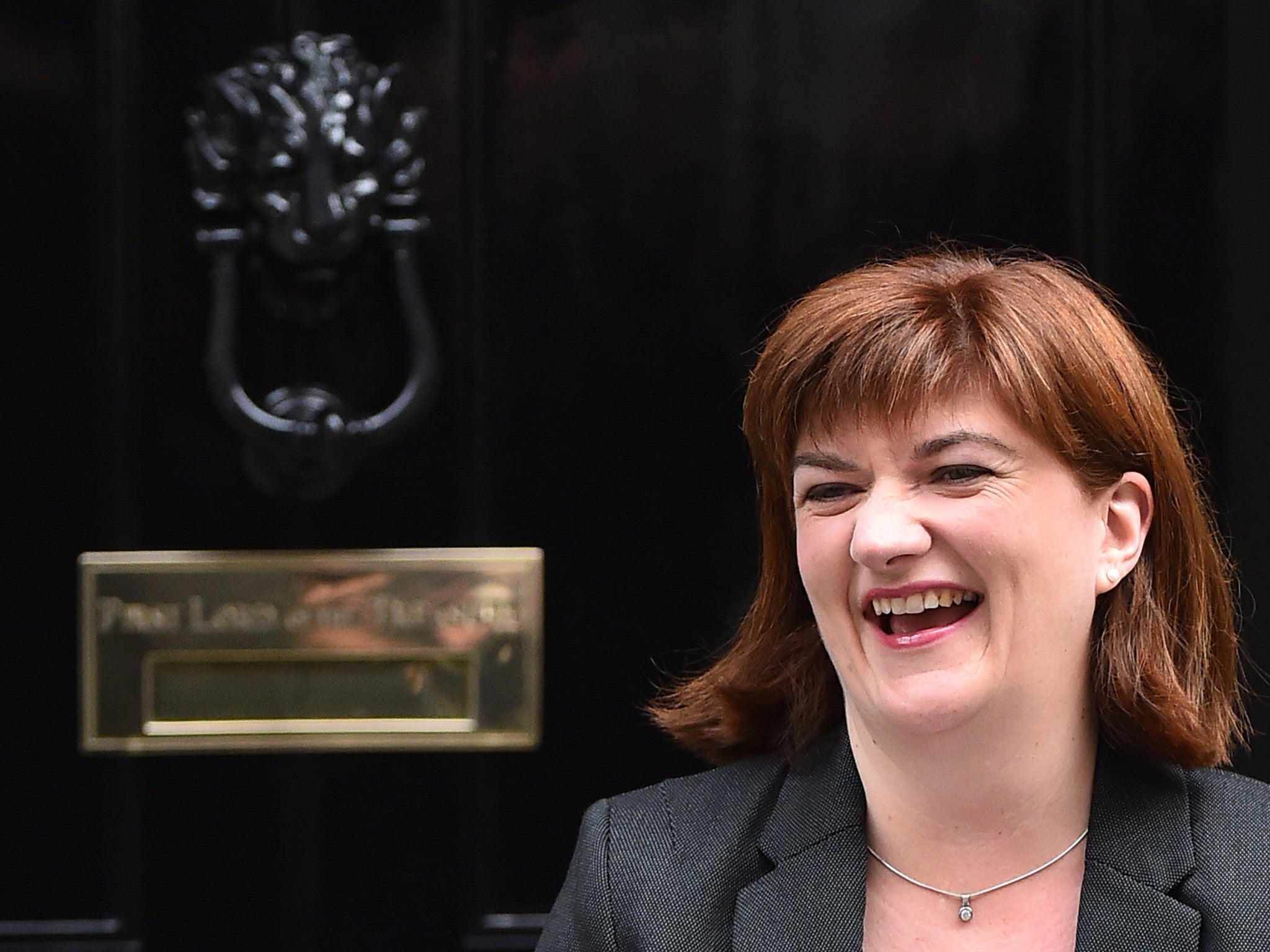Successful schools could plummet down league tables after old-style GCSEs banned from rankings
Schools have been 'plunged into disruption and uncertainty' by a Government decision to shift the goalposts over new GCSEs without warning

Successful schools could plummet down the Government league tables after Education Secretary Nicky Morgan banned old-style GCSEs from the rankings in an unexpected U-turn.
Schools across England have been “plunged into disruption and uncertainty” by a Government decision to shift the goalposts over new GCSEs without warning, the president of the Association of School and College Leaders (ASCL) warned.
Last month minsters unexpectedly ruled that only new-style reformed GCSEs will be included in school performance tables as they become available, and that any unreformed exams taken by these students will not count in the rankings. The new GCSEs were introduced by former education secretary Michael Gove to raise standards and return to more “traditional” teaching methods.

The Government had previously pledged that old-style unreformed GCSEs would still count in tables during the transition to the new exams.
ASCL has been pressing ministers to revert to its original decision, and has carried out a survey of 1,000 members showing that nearly three in four respondents (73 per cent) disagreed or strongly disagreed with the rule change.
David Anderson, headteacher of Queen Elizabeth’s Grammar School in Faversham, Kent, said: “This school was judged as Outstanding by Ofsted in March 2015, with particular credit given to the impact of its innovative curriculum which sees all students starting their GCSEs in Year 9, completing a few in Year 10 and the remainder in Year 11.
“The school will be severely disadvantaged by this retrograde decision, which means many of the GCSE grades held by Year 11 students for 2018 will not count, and our EBacc score is likely to fall from around 80 per cent to 0.
“With only two weeks of term remaining, the Year 8 students have chosen their options and we have a very tightly costed, staffed timetable; do we need to cause havoc by changing everything?”
Peter Kent, ASCL President, and headteacher of Lawrence Sheriff School, in Rugby, said: “School leaders are now left with an invidious dilemma.
“They must either change decisions already made with students and parents, and rip up existing timetables, to make sure everybody takes the new reformed GCSEs, or press on with the plans they already had in place and accept that their performance tables will suffer because they will include unreformed GCSEs.
“This has plunged schools, students and parents into disruption and uncertainty.”
New GCSE courses are being introduced in many subjects in September 2016 with the exams due to be sat in the summer of 2018.
A spokesman for the Department for Education said that the change would not affect students’ achievements, only schools’ league table rankings and that schools should help students choose the courses that are best for them, not the league tables. Our new world-class GCSEs are raising the bar so more young people have access to the world class education they deserve.”
Join our commenting forum
Join thought-provoking conversations, follow other Independent readers and see their replies
0Comments